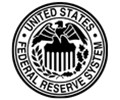

Federal Reserve Chair Jerome Powell said on Friday the U.S. central bank should begin reducing its asset purchases soon, but should not yet raise interest rates because employment is still too low and high inflation will likely abate next year as pressures from the COVID-19 pandemic fade.
“I do think it’s time to taper; I don’t think it’s time to raise rates,” Powell said in a virtual appearance before a conference. “We think we can be patient and allow the labor market to heal.”
That outlook, Powell emphasized, is only the most likely case, adding that if inflation – already higher and lasting longer than earlier expected – moves persistently upward, the Fed would act.
“Our policy is well positioned to manage a range of plausible outcomes,” he said.
The Fed is on the cusp of beginning to withdraw some of its crisis-era support when it begins to taper its $120 billion in monthly purchases of Treasury bonds and mortgage-backed securities, a move it has signaled it could take next month.
The central bank, however, is facing a delicate balancing act in its dual mandate to seek full employment and stable prices.
Consumer prices have been rising at more than twice the Fed’s 2% target, but employment is still well below the pre-pandemic level.
And, Powell noted, “supply constraints and elevated inflation are likely to last longer than previously expected and well into next year, and the same is true for pressure on wages.”
The most likely case is for inflation pressures to abate and job growth to resume its pace from this past summer, he said, but “if we were to see a risk of inflation moving persistently higher, we would certainly use our tools.”
For now, the Fed will watch and wait, he said.
“While the time is near for tapering our asset purchases it would be premature to tighten policies using rates now, with the effect and intent of slowing job growth, when there is good reason to expect that we’ll return to robust jobs growth and for the supply constraints to diminish, both of which we would have the effect of increasing potential output of the economy,” he said.
Source: Reuters